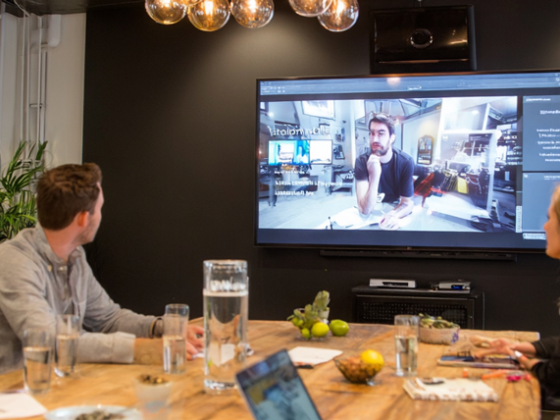The great wealth transfer is underway. It’s a monumental shift of financial power from the Boomer generation, who, by 2030, will all be over the age of 65, to their children and grandchildren (Millennials and Gen Z). Investopedia estimates the great wealth transfer will result in $59 trillion moving to younger generations. Others estimate that number to be more than $70 trillion. With that, it’s considered the “largest redistribution of wealth in human history.” But it’s not just about the money; it’s the combination of money and the power shift (political, social, and economic) that will follow.
Influential Events
Millennials (born 1981-1995) and Gen Z (born 1996-2009) children lived their youth and early adult lives through tumultuous times. From growing up in wartime to living through economic distress to literally coming of age in the midst of a pandemic, the experiences of these generations are significantly different from the Boomers before them. Gen X, born 1966-1980, while older, still experienced some of the same circumstances as Millennials – crushing student debt, housing inaccessibility, etc. Because these generations have not followed the typical Boomer path of going to college, getting a job, buying a house, and having a family at the same ages and stages, their role as consumers have been different from the start. With their expected inherited wealth, we need to begin mapping their trajectory as consumers to be able to meet their needs.
Frugal and Conscientious
When considering how these consumers came to age, brands will need a different approach from what they used with Boomers or Gen X. Younger generations hold a different position on money, which has changed the dynamics within Millennials and Gen Z. In both cases, they’re more frugal, more cautious with their spending, and more intentional about where and with whom they spend their money.

Millennials as Consumers
Millennials are about to have the most money they’ve ever had, but they grew up in the worst economic conditions since the Great Depression. Most Millennials don’t currently own a home, and 18% believe they will always rent. According to Investopedia, despite being the largest generation by population, only 17% of total homeowners are Millennials, and only 42% of Millennials were homeowners at age 30, compared to 48% of Gen X and 51% of Baby Boomers at the same age. This is a notable shift as brands look to consider redefined needs to support the home environments of these consumers.
Reaching the Millennial Consumer
Because of their life experiences, Millennials make spending choices that feel can feel unpredictable at times to retailers. The generation is also quite diverse – a quarter of Millennials speak a language other than English as their primary language, and more than a third are non-white. The same marketing that was so effective on Boomers will not resonate with Millennials. So how do you reach them?

Deliver a Consistent Experience. If there was ever a time to ensure a consistent brand experience between mobile and in-store, this is the generation that demands it. More than 90% of Millennials own and use smartphones; this is the OG digital native generation. They expect instant information, easy access, and consistency across channels. They value trust indicators and appreciate access to real humans. Personality, transparency, and responsiveness are key.
Engage Authentically. Whether you’re writing content for a blog, posting on social media, or advertising, be authentic. As a whole, this generation wants to know you get them, understand their needs, and contribute to improving their lives and life experiences.
Be Where They Are. The greatest opportunity for brand awareness lies within where Millennials spend their time. From binging Netflix to watching YouTube and scrolling social media the online world is a direct avenue to connect with this audience.
Tap the Influencers. Virtually all Millennials – 97% – read reviews before making a purchasing decision. They’re more likely to trust a brand that has been recommended by another consumer – even a stranger – over trusting the brand itself. Make sure you make your reviews and recommendations are easy to find online. Even when they shop in your stores, which they love to do, they’ll look first online to see what others say about you.
Focus on Lifestyle Choices. Millennials are not moving through stages of life the same way previous generations. Attract Millennials not by focusing on where they are in life, but instead by how they identify socially or through the causes with which they identify.
Be Transparent. Millennials are paying attention, and looking for brands that show – through action – that they care about the same things they do – and they’ll pay more for it. They want to know if you support important causes, make ethical business decisions, and how you incorporate sustainable practices.
Reaching the Gen Z Consumer
Gen Z was born into a never-ending war that turned into a never-ending pandemic. The youngest Gen Z consumers, who are now in middle school, to the oldest, who are early-career professionals, have shouldered the worst of the education experience and most of the job loss during the pandemic. Reaching them is a complex and difficult mission, as they’d rather save money than spend it. So how do you connect your brand to Gen Z?

Have Purpose Beyond Profit. CSR might be a nice-to-have with older generations; with Gen Z, it’s your lead. Your purpose needs to be something more than profit. Maybe it’s revolutionizing the way you manufacture something so that it protects the planet, or maybe you donate a portion of what you make to a worthy cause, but it’s the “why,” not the “what,” that will turn Gen Z into loyal consumers.
Foster the Entrepreneurial Spirit. Gen Z has no interest in the typical corporate structure, and they don’t believe in the kind of job security they’ve never seen. That may explain why 72% of teens want to start their own businesses. Showcase your own entrepreneurial spirit and innovation to attract them – and demonstrate your care for your employees.
Engage Authentically. Like Millennials, Gen Z has no time for canned responses or generic marketing. They want authentic engagement and interaction that feels personal. These are purposeful consumers, not accumulators.
Don’t Waste Time. Gen Z is the TikTok generation. They want small, consumable pieces of content, and that translates to marketing, too. What can you do to get their attention in 8 seconds or less? Because that’s all the time you have. According to Kantar, 83% of consumers browsing TikTok say seeing trending content has inspired them to make a purchase.
Be a Brand They Can Believe In. For Gen Z, consumption for consumption’s sake is offensive. Conservation, sustainability, and respecting privacy are extremely important. “When I think “cool” I imagine companies that do great things for customers/employees or beautiful/unusual products.” – Female, 17, UT, Urban
Emphasize Experience. Gen Z seek out meaningful and memorable experiences, not just products. They have a “you only live once” attitude in which they will prioritize fun over sacrifice.
Be Impeccable with Your Brand. Gen Z has a high standard for what they want their personal future to hold. Brands with purpose win in the long run, and we’ve seen the power of consumer resiliency.
Most brands are accustomed to equating spending to the Boomers, who currently control over 60% of the money in this country. As the great wealth transfer begins in earnest, the entire shift and mentality of the receivers will be unlike anything we are familiar with. This shift represents invaluable opportunities for companies to listen and pay attention.
Eager for more insights about retail? Check out how some retailers are Minding the Retail Gap between pandemic and high performance.




